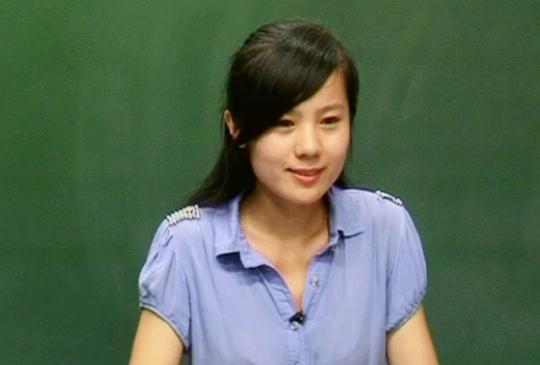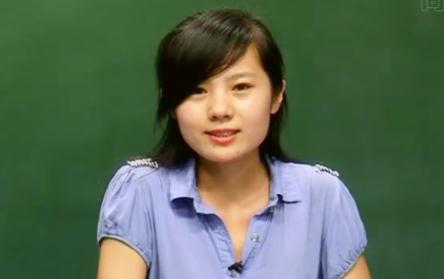课程内容
高中英语《认识祖先 Unit 5 Meeting your ancestors(Part 2)》(选修8)
Phrases
尝试,猜测 try a tentative guess
领...到处看 show sb around
意识到... be aware that
不管,不顾 regardless of
把...吓走 scare sth/sb away
使...一直.... keep...doing
切碎 cut up
关心,在意 care about
在途中 on one's journey (to sp)
Language points
1.You must be aware that it's here that we've found evidence of some of the earliest people who lived in this part of the world.
想必你们知道,正是在这儿我们找到了居住在世界这个部分最早人类的证据。
1)You must be aware that.. 主句后接由强调句和定语从句组成的宾语从句。
must 是作为情态动词表示肯定推测,译作“一定,肯定“,只用于肯定推测。对现在或将来事实推测,用"must do".
You must be hungry after a long walk.
走了很长的路,你一定很饿。
对正发生或进行的事进行推测,用”must be doing".
The light is on.He must be doing his homework now.灯亮着,他一定正在做作业。
对过去的事进行推测,用“must have done".
The ground is wet.It must have rained last night.
地是湿的,昨晚一定下雨了。
此时,应注意反意疑问句的构成。如果句中有表示过去的时间状语,反意疑问句用"didn't+主语”:如果句中无表示过去的时间状语,反意疑问句用“haven't/hasn't+主语”。
He must have arrived here last night,didn't he?
他一定昨晚就来这儿了,不是吗?
He must have arrived here,hasn't he?
他一定来这儿了,不是吗?
2)aware adj.意识到的,知道的 通常用作表语
We should be aware that a lot of animals are becoming endangered.
我们必须清楚地认识到许多动物正频临灭绝的危险。
be aware of sth. 知道;意识到
Though most smokers are aware of the dangers of smoking,they won't give up.
3)it's here that we're... 是强调句,其基本句式是It is(was)+被强调部分+that(who)+句子其他部分,此结构强调的成分仅限于主语、宾语和状语。
It was your mother whom I met in the street.
我在街上碰到的是你的母亲。
It was in the street that I met your mother.
我是在街上碰到你母亲的。
It was she who had been wrong.错的是她。
It is what you do rather than what you say (A)matters.
A That B what C which D this
本题强调主语,此时应用that 来引导。
4)"Who lived in this part of the world"是定语从句修饰先行词people.
people在定语从句作主语,故用关系代词who来引导定语从句。
2.I'sorry to interrupt you but how could they live here?
很抱歉打扰你,我想问问他们是怎么在这里生活的?
1)句型“I'm sorry...but..."是口语中委婉的表达,"but"表示语义上的转折。
-Are you free this weekend?
-I'm sorry,but I have lots of work to do.
-周末有空吗?
-对不起,我有大量的事要做。
2)interrupt vt.&vi.
①打断;中断
别打扰他,他还没完成呢?
Don't interrupt him,for he hasn't finished yet.
他的学习由于战争而中断。
His studies were interrupted by the war.
②打岔;插嘴
It is rude to interrupt.
"Don't interrupt."he said.
区别:interrupt和disturb
interrupt v.打扰,打断,阻碍。常有“使...停止(中断)”的意思。
His speech was constantly interrupted by applause.
disturb v.打扰,妨碍。常指失去了正常的状态或导致困难产生。
Bad dreams disturbed her sleep.
根据汉语提示完成句子
(1)The trade between the two contries (was interrupted)(被中断)by the war.
(2)The house is so tall that it (interrupts)(挡住)our view of Mount Tai.
(3)Don't (interrupt)(插嘴)When others are talking.
(4)She opened the door quietly so as not to (disturb)(打扰)the sleeping boy.
Sorry to (B)you,but your mother is waiting outside.
A break B interrupt C stop D disturb
【解析】B 考查动词词义辨析。disturb 表示“扰乱、妨碍安静、平静或正常的秩序”。而interrupt则强调“使工作、谈话等中断”。stop 表示“停止、阻止”:break 表示“打破、中止”。根据句意可推知B 项正确。
3.We have found human and animal bones in those caves higher up the hill as well as tools and ornaments.
我们在山的比较高的洞穴里发现了动物和人类的骨头以及工具和装饰品。
as well as 1)conj. as well as 可以用来连接两个相同的成分,如:名词、形容词、动词、介词,通常不位于句首。意为“不但...而且”。
She sings as well as playing the piano.
Helen as well as I is eager to see the performance.
2)prep.相当于besides,in addition to,意为“除....之外”,后面通常接名词。
As well as eating five course meals,they drank two bottles of wine.
4.So we think it is reasonable to assume they lived in these caves,regardless of the cold.
因此我们有理由认为他们不顾寒冷住在这些洞穴里。
1)regardless of
不管,不顾
He climbed the building,regardless of the danger.
不管有多危险,他还是爬上了大厦。
in spite of
We will persevere regardless of past failures.
尽管以前我们失败过,但仍要坚持下去。
2)assume vt.
①假定;设想 科学家们设想月球上没有动物。
The scientists assume that there are no animals on the moon.
②装作 她装出一副吃惊的样子。
She assumed a look of surprise.
③担任,承担 我来承担责任
I assumed the responsibility.
Assume 后多跟名词,宾语+to be+n./adj.that 从句
Assuming 放在句首,表一种猜测。
e.g Assuming it rains tomorrow,what shall we do?
假如明天下雨,我们该做什么呢?
扩展:assumption n.
make an assumption
根据汉语提示完成句子
(1)We must (assume him to be right/that he is right)(假设他是对的)until he is proved wrong.
(2)The theory (is based on a series of wrong assumptions.)(是以一系列错误的设想为依据的).
(A)I think we can safely ( )that interest rates will go up again soon.
A assume B accomplish C attain D assemble
【解析】A 考查动词词义辨析。assume 意为“完成(工作或任务),达到(某个程度)”:attain 意为“达到,获得”:assemble 意为“集合,装配”。根据句意可知A项正确。
5.That would have kept them warm,cooked the food and scared wild animals away as well.
他们用这火取暖、做饭,还能用火吓跑野兽。
1)would 表示猜测,译为“想必....”、“肯定会....”
如果汽车当时反倒悬崖下,他们早就丧命了。
They would have been killed if the car has gone over the cliff.
2)keep them warm 为keep+宾语+宾语补足语的结构意为“使.....处于某种状态(情况)”。用作宾语补足语常见的词有现在分词、过去分词、形容词、副词以及介词短语。
He kept me waiting for half an hour.
Keep your mouth shut and your eyes open.
6.We have been excavating layers of ash almost six metres thick,which suggests that they might have kept the fire burning all winter.
我们一直在挖掘一层层的积灰,几乎有六米厚,这说明他们可能整个冬季都在烧火。
1)have been excavating 现在完成进行时,意思是一直外挖,表示过去发生的动作一直不间断地进行到现在,强调动作的继续。
I have been looking for my lost book for three days,but I still haven't found it.
我已经找了三天我丢的书,但仍没找到。
She has been sweeping the street all day.
She is too tired.
她一整天都在扫大街,她太累了。
We have been waiting for you for two hours.
We don't want to wait any longer.
我们已经等你两个小时了,不想再等了。
2)句中“which”用来引导非限制性定语从句,先行词为其前的句子。
3)suggest vt.to make evident indirectly;imply 意为“暗示,意味,表明”
Her pale face sggests that she was ill.
她苍白的脸色表明她病了。
The handwriting of the letter suggests that the letter might be from a lady.
从书信的字体上看,写信人是一位女性。
A silence suggested disapproval.
沉默暗示着反对。
His face suggests he is happy now.
从他脸上能看出他现在很幸福。
His bad manners suggest a lcak of family education.
他的无礼反应了他缺乏家教。
但当suggest作“建议”讲时,其用法为:
suggest +doing
I suggest her going home at once.
我建议她马上回家。
suggest+(that)...should do...
I suggest (that)she (should)go home at once.
我建议她要马上回家。
-How do you (D)we go to Beijing for our holidays?
-I think we'd better fly there.It's much more comfortable.
A insist B want C suppose D suggest
4)might have done
A:Where was your sister?I didn't see her at the party.
B:She might have gone swimming with some friends.
A:你姐姐上哪儿去了?聚会时我没见到她。
B:她可能跟朋友游泳去了。
7.sharpen vt.使锋利,尖锐;使强烈
The knife needs sharpening.
The tone of his letters has sharpened recently.
sharp adj.锋利的,尖锐的,急转的,陡峭;突然的,急剧
a sharp turn 急转弯
a sharp increase 急剧增加
Homework
1.Review the language points
2.Preparations:Preview Using language.
此内容正在抓紧时间编辑中,请耐心等待
郭老师
女,中教高级职称
市名师、市学科带头人、市骨干教师。有丰富的教学经验和与学生的沟通交流经验。






















